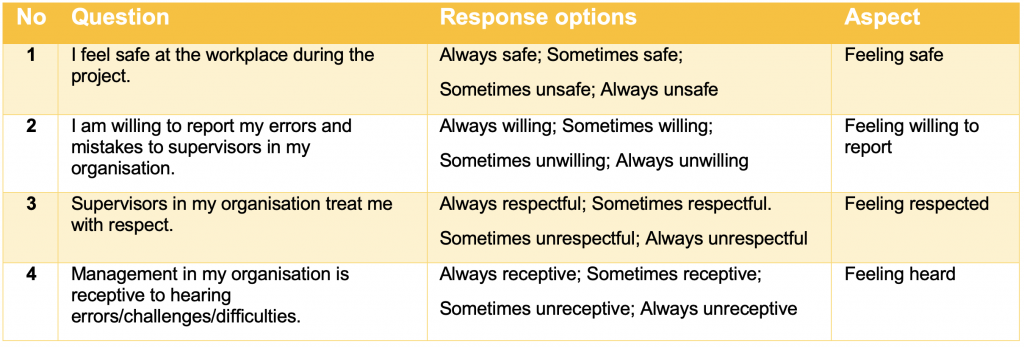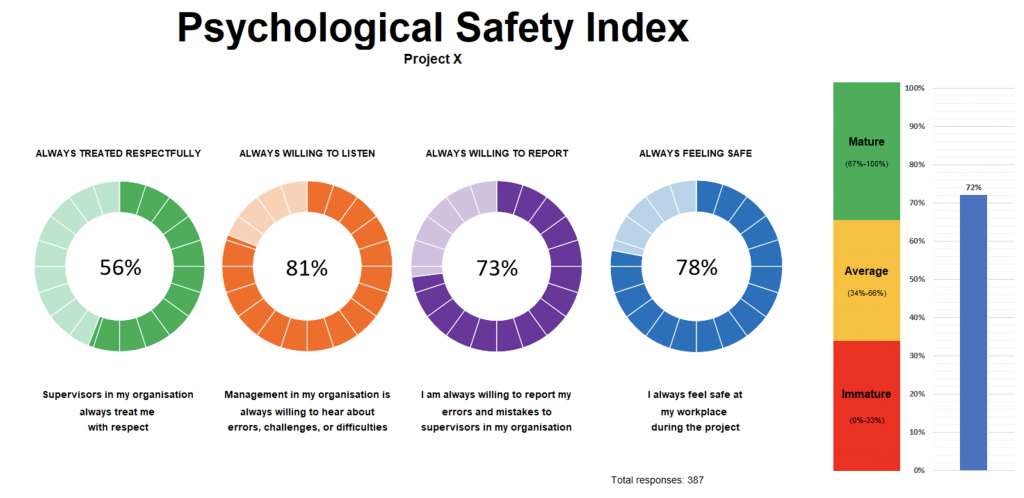Psychological Safety Index
The ‘Psychological Safety Index’ (PSI) is a tool to gain insight into the key aspects of psychological safety at a workplace: feeling safe, feeling respected, feeling heard, and being willing to report mistakes. These are the building blocks of psychological safety: a climate of reduced interpersonal risk where people feel safe and willing to speak up to express their true opinion about safety-critical aspects of work. People feel heard by their leaders who are respectful and willing to listen.
PSI Questions
The PSI consists of four (4) questions, which represent the four key elements:

PSI Example Results
The PSI graph shows the survey responses in four (4) circles in respect to the elements of psychological safety. Each circle ranges from 0% (lowest) to 100% (highest) score. The PSI score is the average of the four element scores (e.g. 72%; see blue bar on the right). A PSI between 67-100% represents a mature score, whereas 34-66% an average score, and 0-33% an immature score.

The above chart is based on mock data and only used to illustrate the concept. The PSI of 72% indicates a high maturity level. The individual scores range from 56% to 81%. Most staff feel safe always to work at the workplace during the project (78%); many staff are always willing to report their errors and mistakes (73%); most people feel management is always receptive to hearing about the challenges and difficulties people experience at work (81%). The score about being treated respectfully received the lowest score (56%). Overall, the organisation has a achieved a mature PSI. Consideration can be given to improve the respect within the organisation and foster respectful interactions at the workplace.